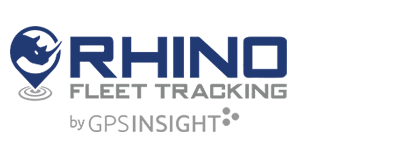Put Green Back in Your Wallet
Integrating a GPS vehicle tracking system into your business will present you with a variety of unique benefits, all of which have a direct, positive impact on your bottom line. From lowering fuel costs to keeping your vehicles on a proper maintenance schedule, Rhino Fleet Tracking’s systems are uniquely configured to put the green back in your wallet.
Fuel costs are often one of the largest expenses for a fleet business. Rhino Fleet Tracking reduces fuel consumption through a variety of ways, such as:
- Reduced vehicle speeds
- Decreased idle times
- Improved routing and dispatching
- Proper vehicle maintenance
- Decreased vehicle misuse
Reduce Vehicle Speeds
According to the U.S. Department of Energy (DOE), aggressive driving (speeding, rapid acceleration and braking) wastes gas.
In fact, these driving habits can lower your gas mileage by 33% at highway speeds, and by 5% around town. Sensible driving is also safer for you and others, so you might just save more than gas money.
GPS tracking systems help you gain significant control over your fleet vehicles by automatically sending out alerts for aggressive driving behavior like speeding, rapid acceleration and braking. Take control of your fleet and reduce fuel savings by up to 33%.
Decreasing Idle Times
The State of Indiana performed extensive research on diesel idle times. According to IN.gov, “…an hour of idle time consumes about one gallon of fuel.”
The study also confirmed that long idle times cause considerably more engine wear and damage than normal driving, which translate directly to increased maintenance costs.
Our customer, Brazos Logistics, was alerted to a driver who napped while idling every hour on a 6 hour trip. The idling time cost over $20 in fuel per day, a $500 alternator failure, and missed shipment deadlines. GPS vehicle tracking systems would have prevented this misuse of company resources.
Rhino Fleet Tracking systems send automatic alerts to you when excessive idling occurs, and these alerts can be customized to any schedule you desire.
Improved Routing
Rhino Fleet Tracking locates every vehicle in the fleet with a great degree of precision, so your dispatchers can manage routing with more efficiency.
This will ensure that vehicles take the most direct route to their intended location, saving both time and fuel.
Another customer, AA Limousine, saves over $1300/year per vehicle using Rhino Fleet Tracking to perfect routing. With 20 vehicles, that totals over $26,000/year in savings.
Auto Rescue utilizes Rhino Fleet Tracking to locate the closest service vehicle to stranded customers. Over 750 service vehicles are tracked, helping them offer the fastest service in the business.
More effective dispatching, shorter routes, and less waste equals significant fuel savings. And all thanks to a GPS vehicle tracking system.
Proper Vehicle Maintenance
Properly maintained vehicles can be up to 35% more fuel efficient than those that are not maintained properly. Most fleet managers rely on drivers to maintain their vehicles, or to notify them when maintenance is required.
Many also use paper or spreadsheet based maintenance schedules, which require extensive manual work. Unfortunately, spreadsheets and other tools can’t track mileage.
Rhino Fleet Tracking systems provide automatic alerts for vehicles requiring maintenance. Fleet managers can pre-set mileage for tire and oil changes, tuning, and scheduled service jobs. This virtually eliminates the need for manual record keeping and reduces maintenance costs for your fleet.

Vehicle Misuse
Misuse of fleet vehicles can increase fuel consumption by 20% or more. Are your drivers using vehicles during off hours or for long distance lunch breaks and personal errands?
One Texas school district customer found their administrator using school vehicles to visit the local pub several times per working day.
Rhino Fleet Tracking will automatically alert you when drivers enter and leave their job site. You will also receive alerts when vehicles are used on off hours, ensuring that your company resources remain reserved for company-oriented tasks.
